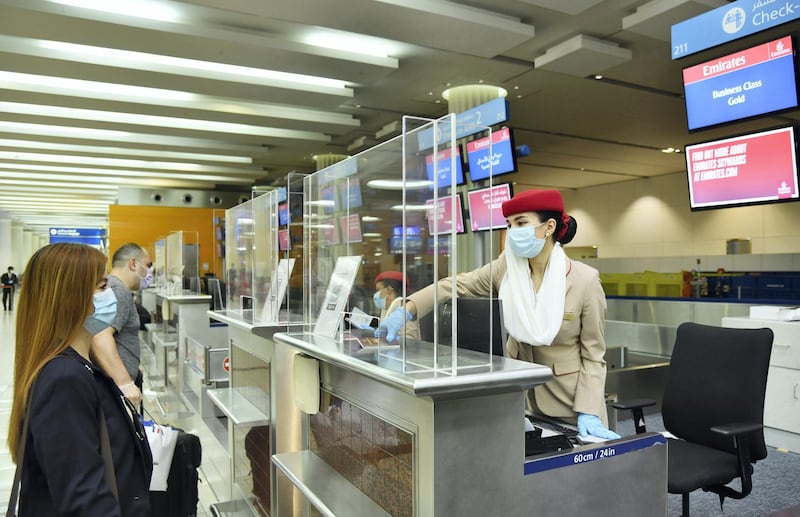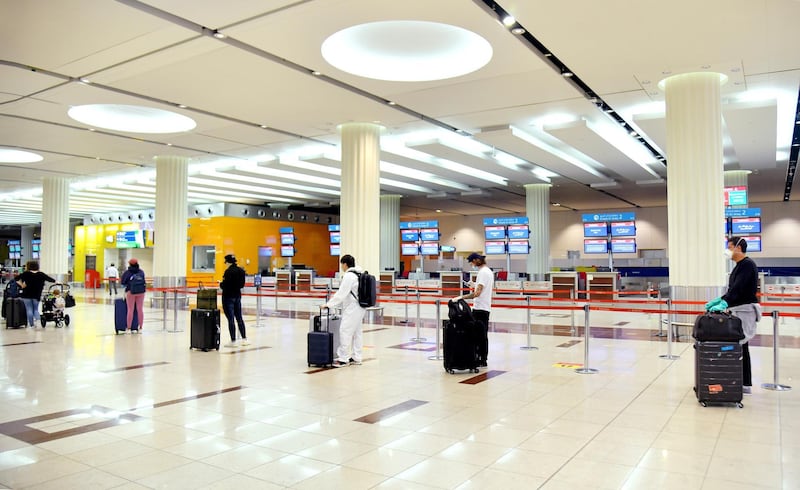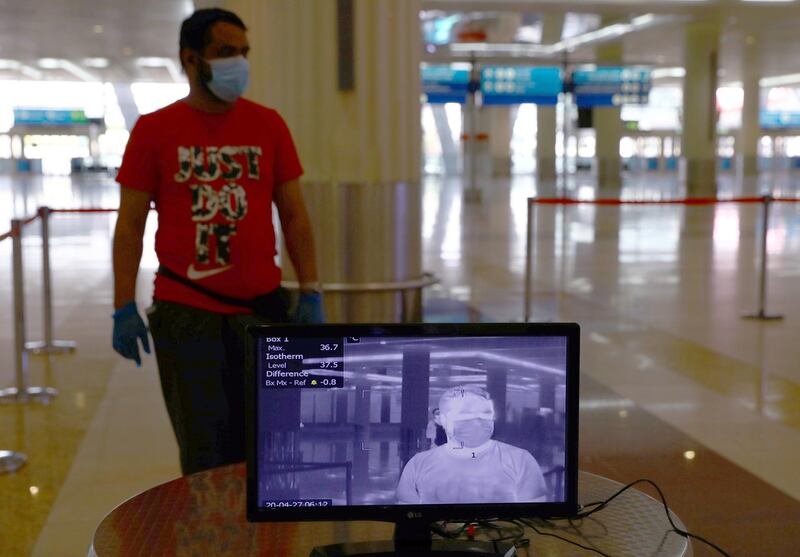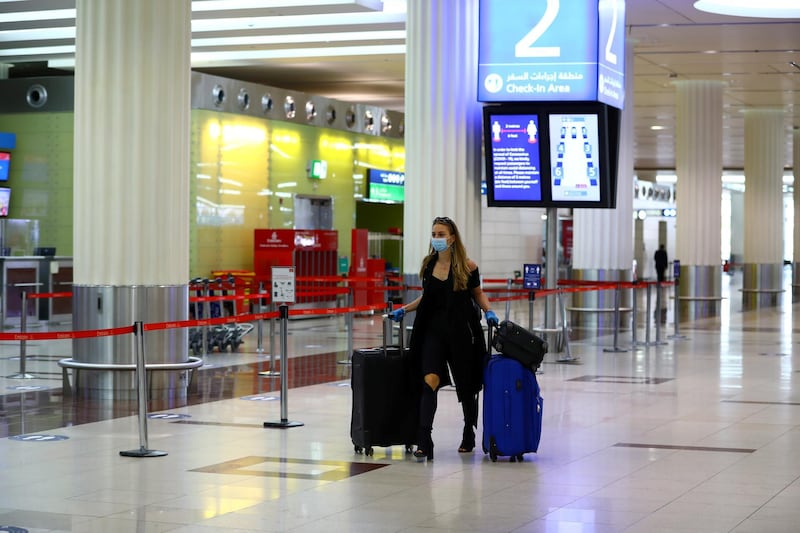Pilots who were forced to land at Al Maktoum International Airport in January last year after an engine on their plane blew were praised for their quick thinking.
The incident happened shortly after take-off from Dubai, when the malfunctioning engine damaged the wing of the cargo plane, forcing the pilots to return.
A recently published air accident investigation report praised the commander and co-pilot at the controls of the Global Africa Aviation cargo flight destined for Noi Bai International Airport in Hanoi, Vietnam, on January 20.
The report published by UAE’s General Civil Aviation Authority cited voice recordings of the pilots' reactions to losing an engine on the McDonnell Douglas MD-11F during the 17-minute flight.
After reaching 2,100 feet, pilots reported a loud bang as turbine parts came loose and damaged the aircraft’s port (left) wing before fire extinguishers went to work.
There were no reports of injuries or property damage as the aircraft lost power from that engine.
The failure was declared a serious incident and referred to the GCAA for investigation.
A report that included a timeline of events and recommendations to avoid similar failures was published in June.
The experienced crewmen were said to have reacted calmly and efficiently.
Reports showed the duct segment of the plane was due for replacement after a recommendation by engineers during routine maintenance work on the plane in 2011.
Safety authorities said recommendations included an airworthiness directive that should not have been overlooked.
Investigators said the flight crew’s management of the incident emphasised the importance of regular emergency procedures training, "buying time" to complete tasks, good communication, and strict adherence to emergency procedures.
The Air Accident Investigation Sector recommended a risk assessment be completed by the Federal Aviation Administration of the United States to avoid similar incidents.
Other recommendations were to stop operators electing to replace parts only at the end of their estimated lifespan, rather than after a recommendation from safety inspector’s airworthiness report.














